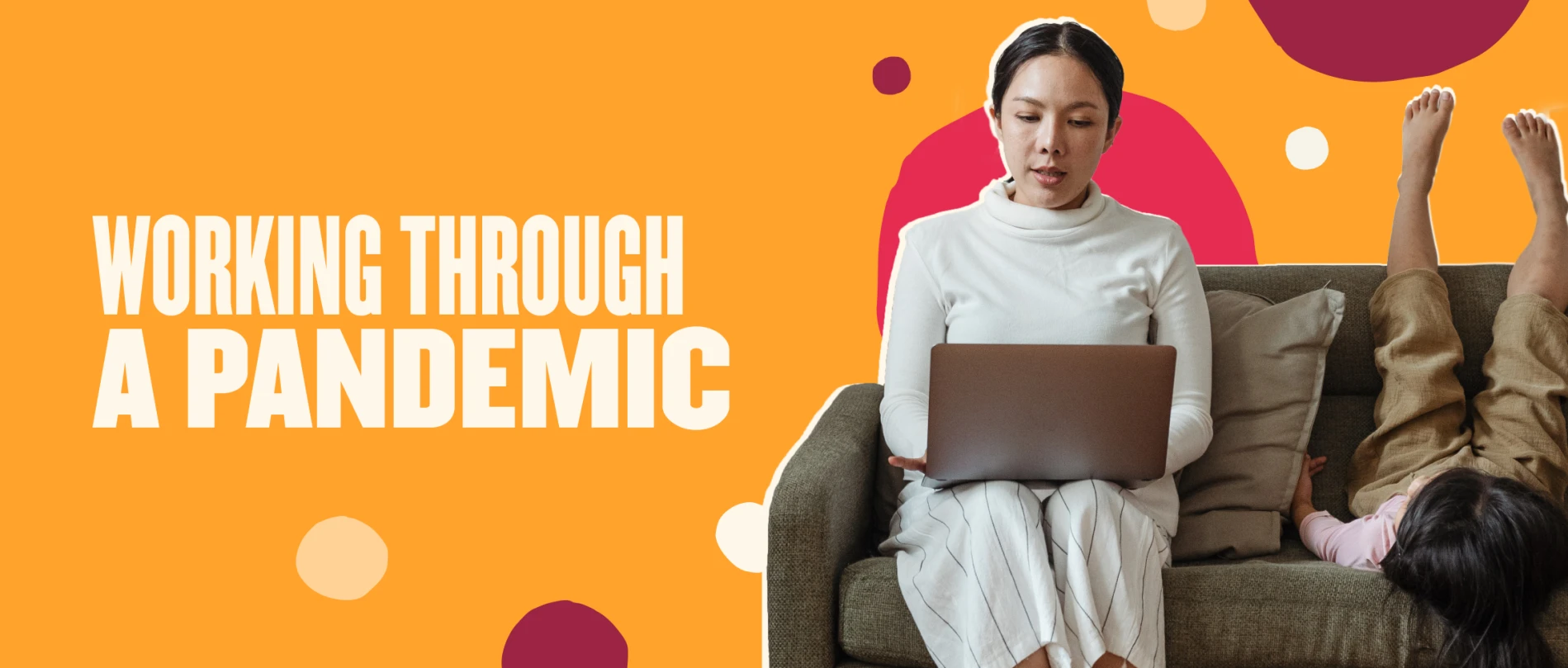The last 15 months were monumental. We all experienced a global pandemic, in addition to important societal issues like the US presidential election and the rise of #Metoo and Black Lives Matter movements. In addition, people had to adjust to a new normal practically overnight as travel ground to a halt, lockdown restrictions grew, and employees had to deal with working from home, homeschooling children, caring for elderly parents, and more. Many people suffered from additional stress, uncertainty, anxiety, physical ailments, quarantine, and not to mention COVID. What a year and then some.
We surveyed 2,000 full-time employees aged 25+—half in the US and half in the UK—who have been employed full-time over the past year. They were not furloughed, they were not on leave, and they were expected to perform and get their tasks done. We wanted to see the effect of life during these times on their productivity, how they felt about their job and workplace, and what they think about remote work.
The following are the main findings of our analysis of their answers. We are sharing the insights from the US and the UK separately in order to compare and contrast. Overall, it feels like the experience of working through a pandemic is similar.
The effect of mental health on productivity
49% of US employees and 43% of UK employees reported that their mental health had a major effect on their productivity. Employees are aware of and are willing to share that mental health does affect their work life, even if the impact is small.
Zooming in on the effect of mental health by groups
The effect of mental health on productivity was very personal and circumstance-related and not necessarily only relevant to specific groups. Still, when we zoom in on the data, we find that men, parents, senior managers, and people aged 25-34 felt the most significant mental health effects compared with their counterparts.
Gender differences:
The percentage of men in the US sample was 42%, but the percentage of men who reported that their mental health majorly affected their productivity was 44%—2% more than their share. In the UK, 64% of the employees that reported “their mental health had some effect on their productivity” were women—7% more than their share in the research.
Age group differences:
In the US, 15% of the respondents were in the 54+ age group. However, 22% reported that their mental health had little effect on productivity—7% more than their share. In the UK, 45% of the group who experienced a “major effect” were younger employees aged 25-34—2% more than their share in the study.
Parenting differences:
59% of the respondents were parents; however, 65% of those majorly affected (more than their share) and in the UK, 53% of survey respondents were parents but made up 57% of the group who was majorly affected. On both sides of the pond, parents were affected more than non-parents.
Role differences:
In the US, 37% of the respondents were Individual contributors, and 41% reported little effect—4% more. 19% of the respondents were senior managers, and 24% reported a major impact—5% more than their share. In the UK, 16% of the respondents were senior managers, and 19% of the group reported little effect—3% more than their share.
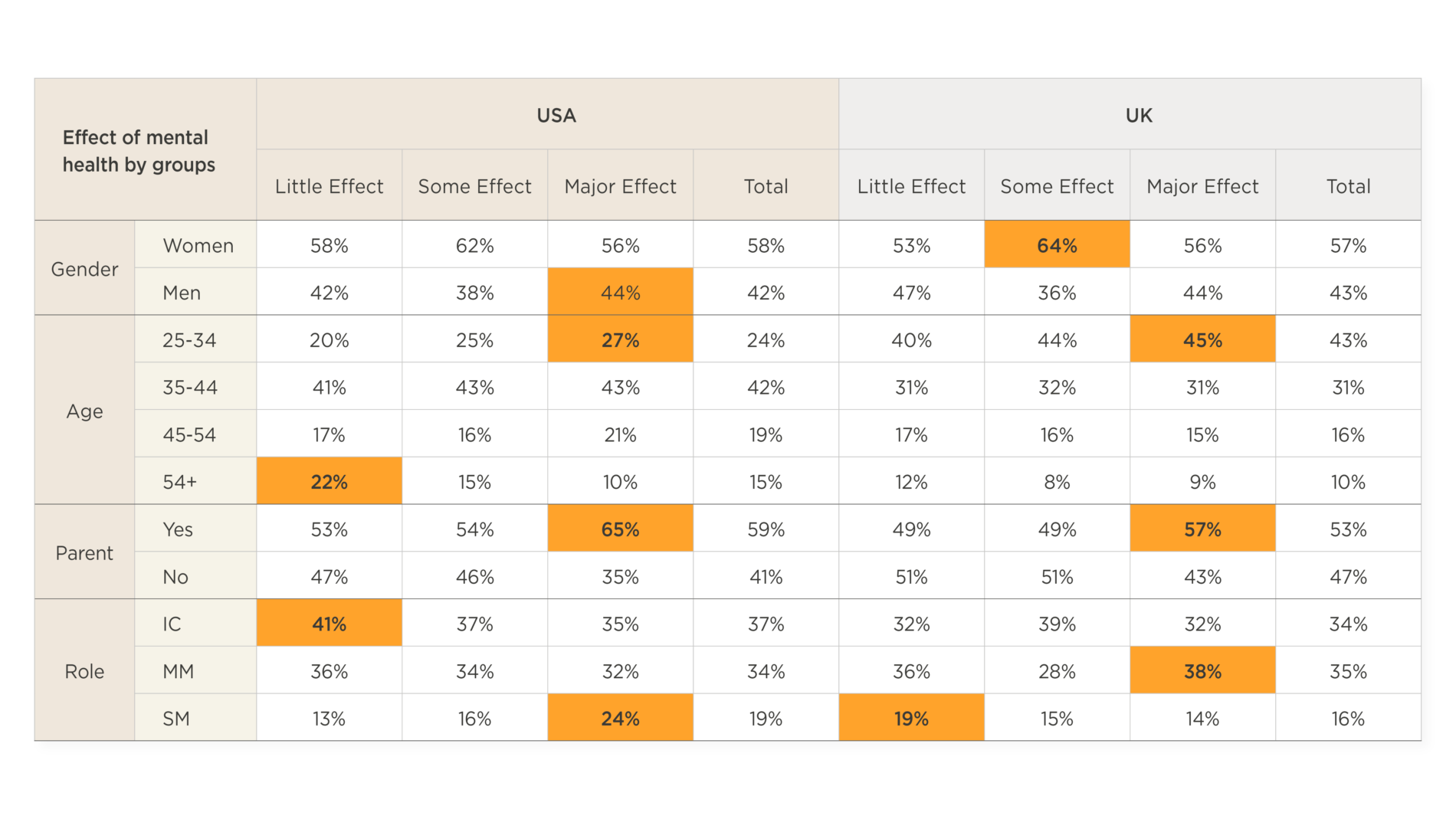
HR and managers support those in need
Those whose mental health majorly affected their productivity reported that their managers supported them more than those who were less affected, showing that support was given more to those in need. Identifying those in need is critical. It seems like overall, in the US, the respondents felt more support than in the UK. Still, in both countries, those whose mental health majorly affected their productivity felt they received more support than their colleagues who reported a smaller effect.
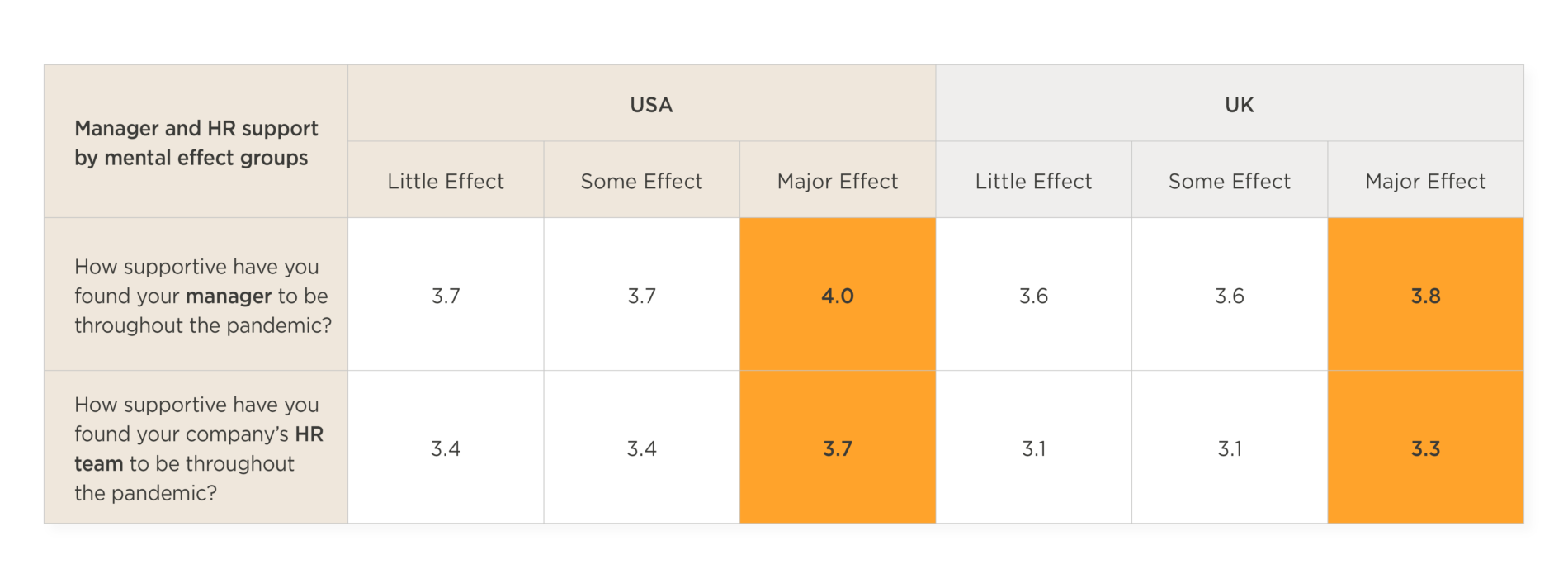
Who was very productive during the last year?
So, how productive were employees since the start of the pandemic? Around 75% of US employees and ~60% of UK employees report that they have been very productive. Even though employees and managers knew that their mental health affected their productivity and admitted to being majorly affected, they still believe that they have shown high productivity during this period.
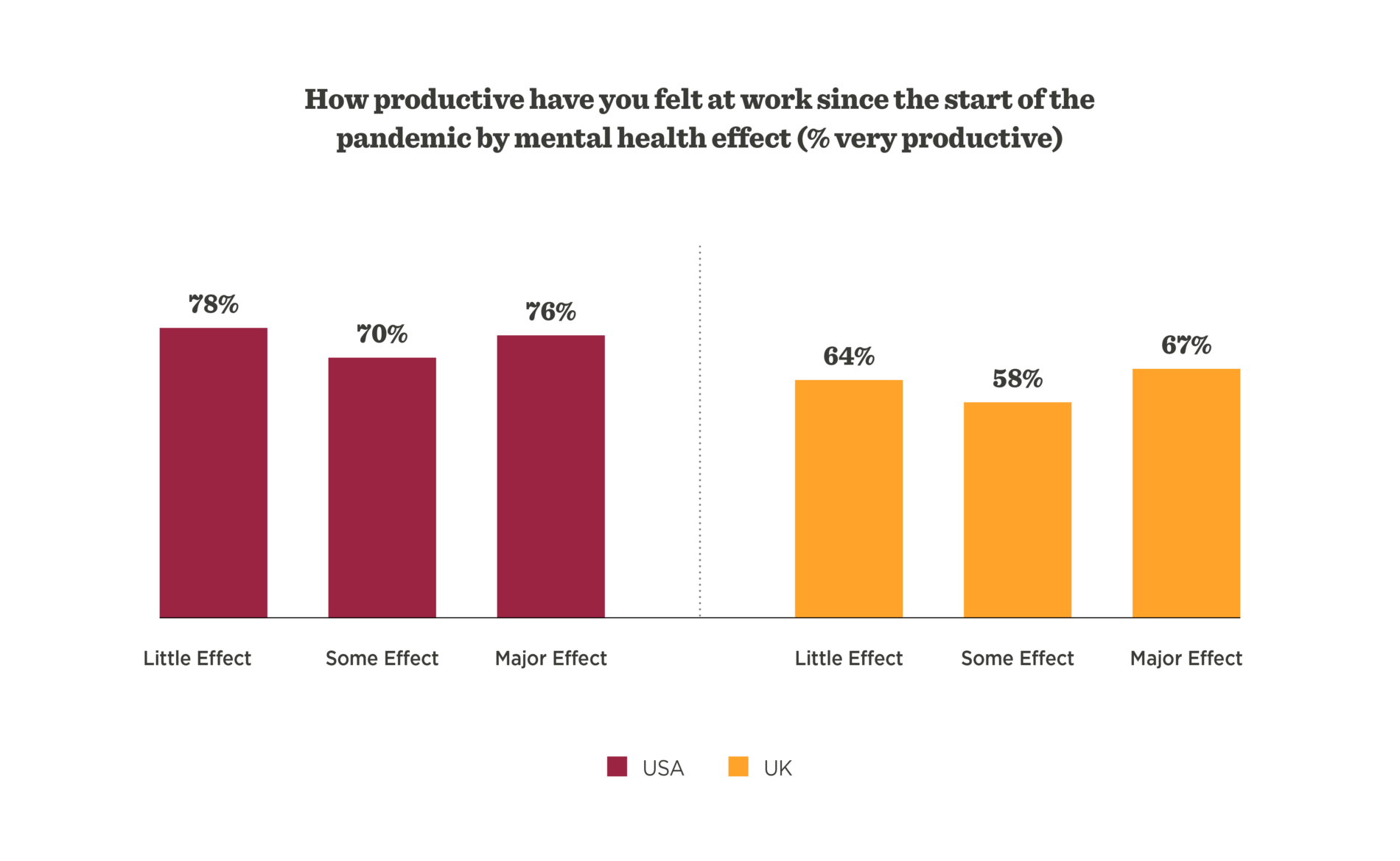
Pros and cons of remote working
In general, more employees in the US believe that the benefits of remote work outweigh the cons, regardless of what effect their mental health has on productivity. In the UK, we see a similar trend. Regardless of the impact of mental health on productivity, most employees believe that hybrid work and remote work benefits outweigh the cons. Mental health stressors did not change attitudes about remote and hybrid work.
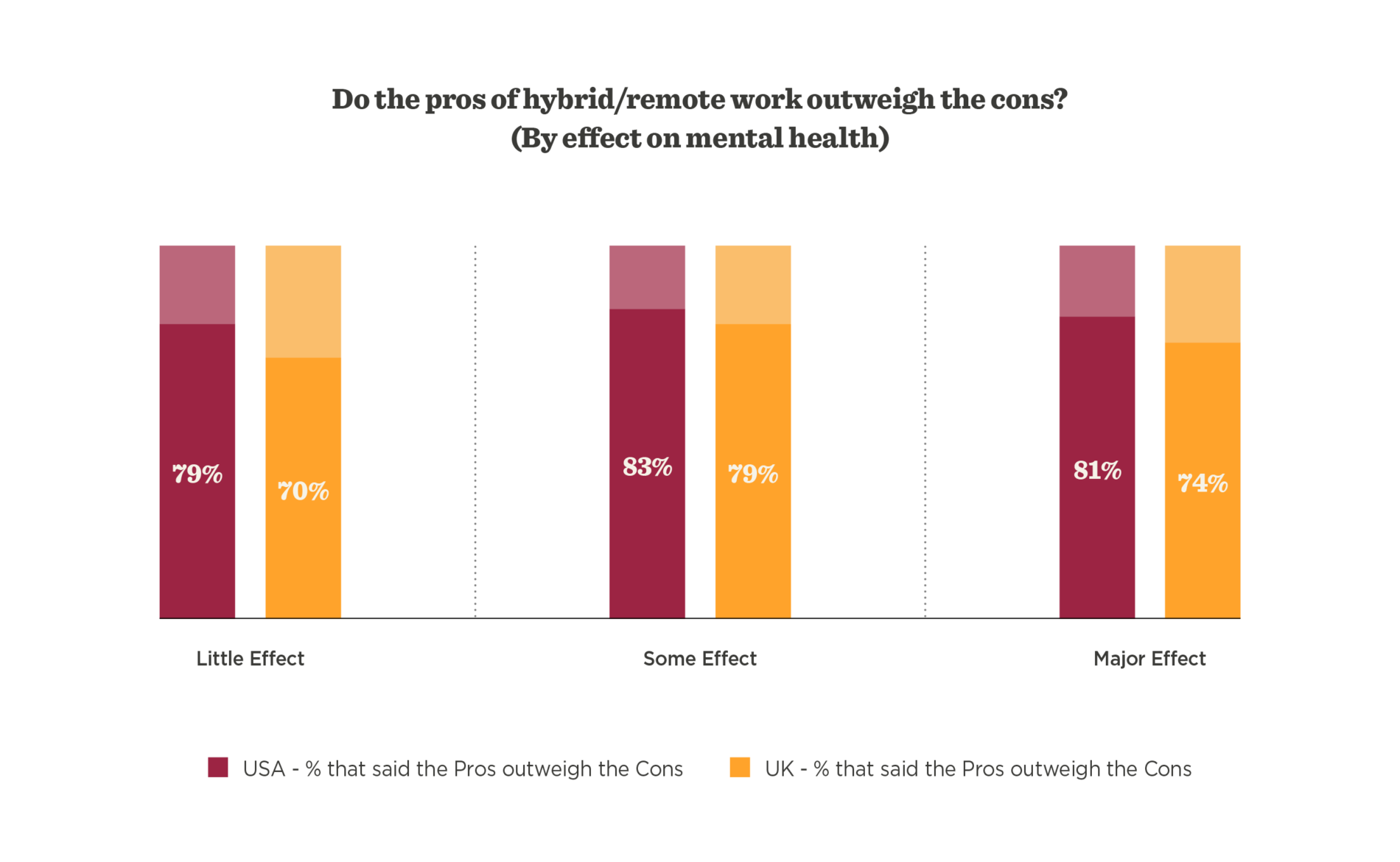
The benefits of working remotely
Flexibility and less time spent commuting are the major benefits of working remotely. Employees have adjusted to the new normal and enjoyed some of the benefits that they never imagined before. All employees, regardless of how their mental health affected their productivity, answered similarly, with minimal differences between the US and UK.
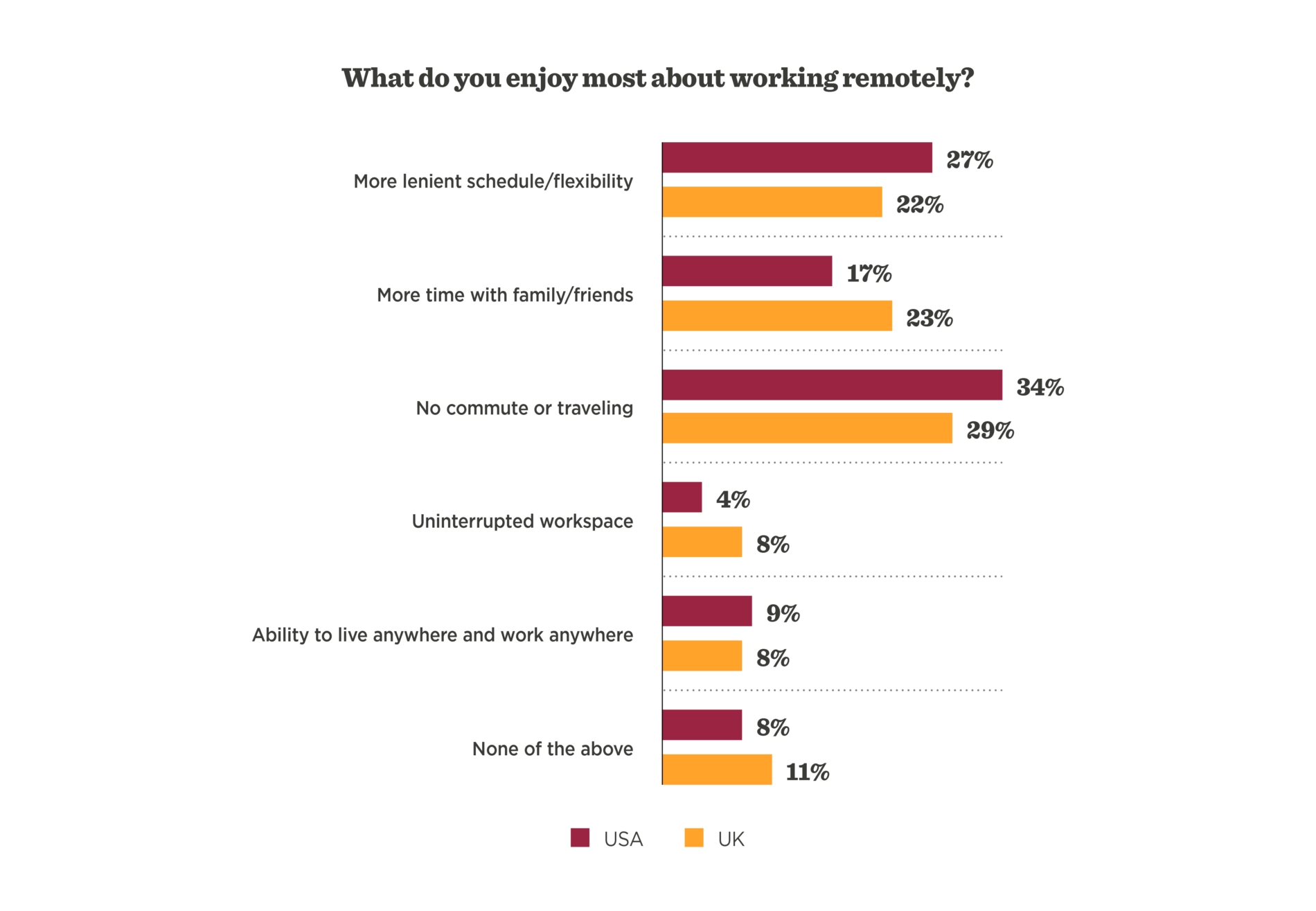
Who helped the transition to remote work?
Both in the US and the UK, the transition to remote and hybrid work happened overnight. Who was most helpful during this transition? Managers ranked first, then co-workers, then HR. HR teams need to support managers so they can support their teams.
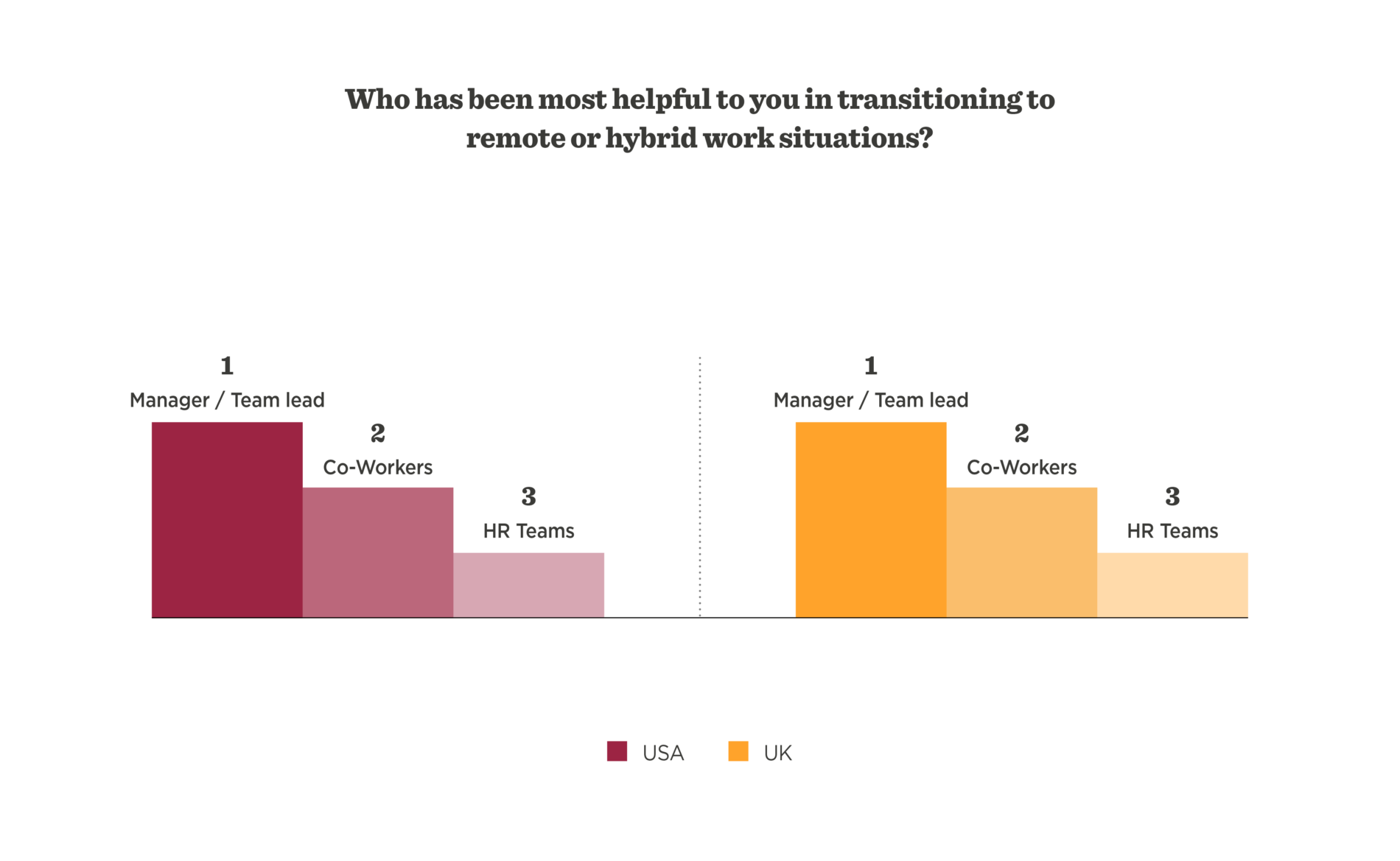
Preferred hybrid work models
There is no one-size-fits-all model for hybrid work, as outlined in the graph. About 80% of employees prefer hybrid work arrangements. Although the benefits of remote outweigh the cons, less than 10% prefer to WFH five days a week, and 14% prefer to WFO five days a week. The hybrid work set up with its unique challenges is still most preferred. Which hybrid work setup is best for your employee? Send out a survey and ask.
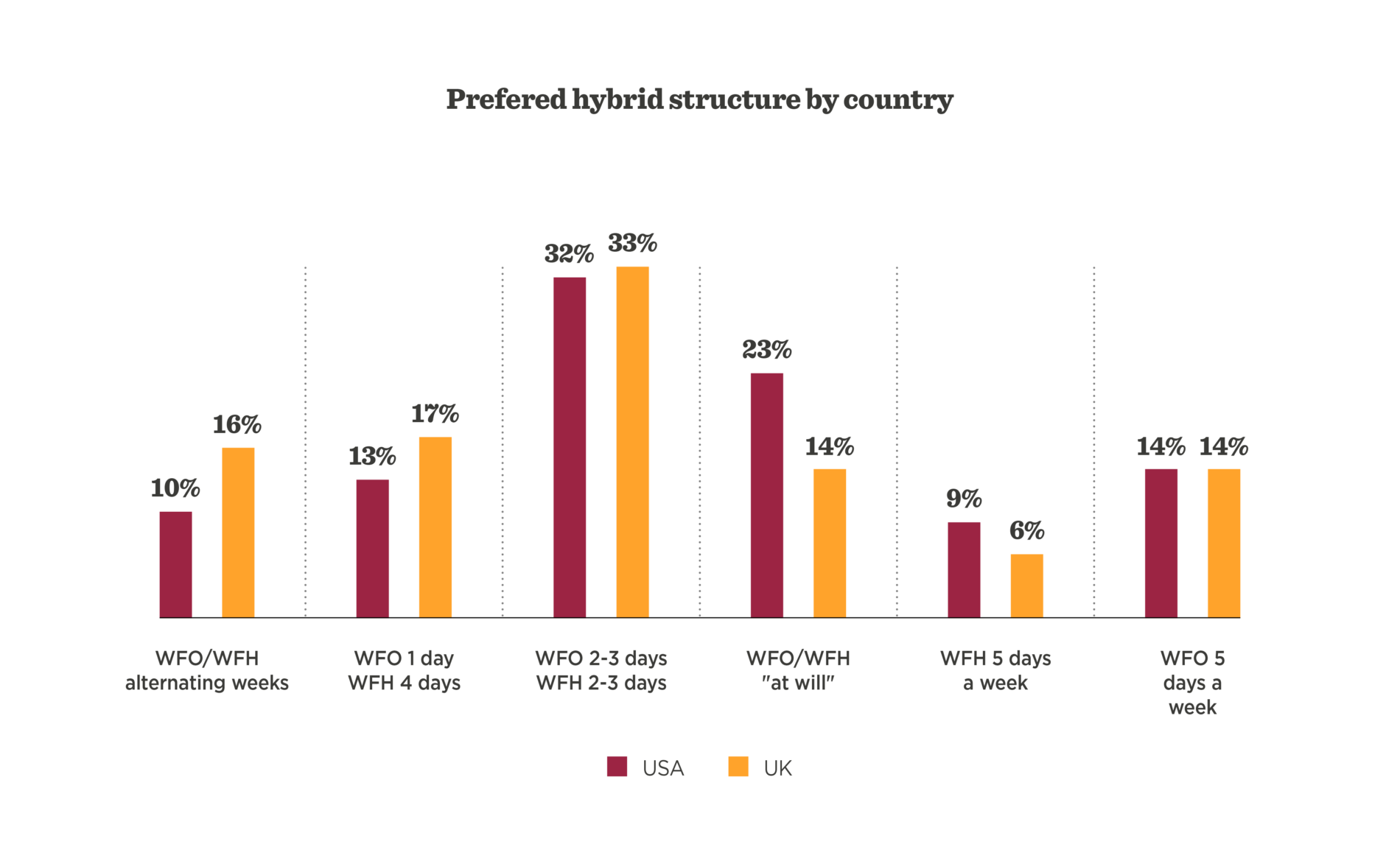
Recommended For Further Reading
The company office
When asked to rank the purpose of the office, US employees ranked collaboration as number one, and UK employees ranked socialization as number one. There is a purpose for the office, which is mainly for teamwork, collaboration, and networking. It is interesting to note that company culture is not office-based and can also be created and maintained from remote work environments.
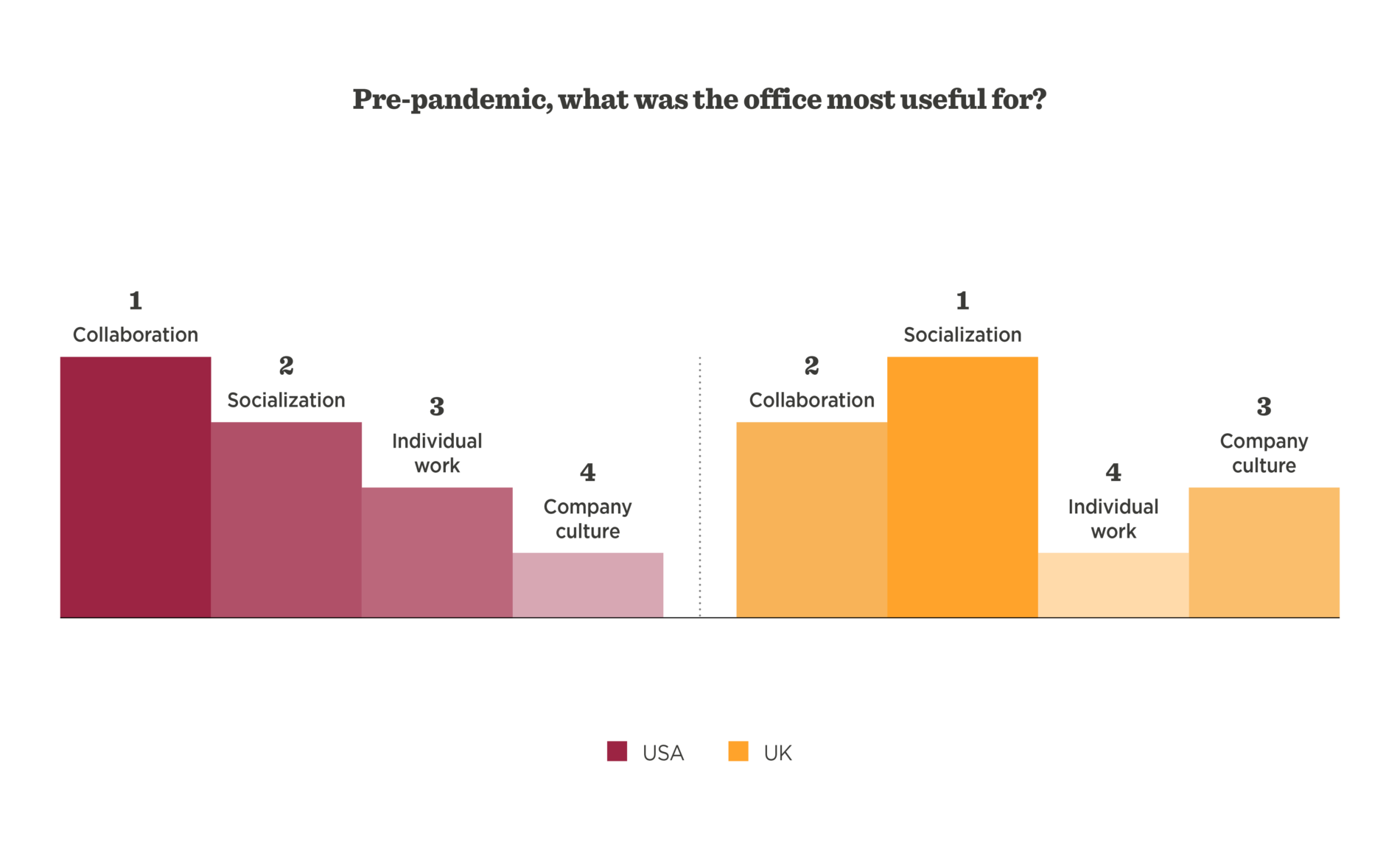
The company office is seen as a place where teams can work together and a shared space for collaboration and socialization. This can be achieved when teams get together once or twice a week and not necessarily on a daily basis.
Mental health matters
Mental health significantly affects productivity, and people are willing to acknowledge it and communicate their experiences. HR teams and managers must support and listen to employees, especially those struggling most. Remote and hybrid work helps team productivity, regardless of mental health effects on productivity. Leverage remote and hybrid work by allowing the offices to be a place for increased collaboration and socialization and the home to be a place for productive individual work.
